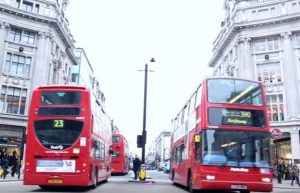
2 March 2021. The Guardian, UK: Of the many coronavirus variants identified so far, there is particular concern about P1, first identified in Brazil, with fears about the extent it can evade the immune system and possibly vaccines. The UK has recorded six cases so far, with the hunt now on for the one positive result who did not leave their contact details.
How worried should we be?
From the intensity of the search for the unidentified person with P1, it would appear the government is very concerned. A public appeal is being followed by knocks on the doors of 379 households in the south-east of England where it is thought the individual may live.
On the other hand, experts say the fact that we know there are six cases and are taking robust measures to ensure there is no spread is a very good sign that the UK can control new variants. We are not in the situation now that we were with the B117 “Kent” variant, which took off under the radar in the late autumn. Nobody knew we had it until it was widespread and it is now the dominant form of infection in the UK.
How did P1 manage to get into the UK?
Realistically there is no net that can keep variants out. P1 is already in 25 countries. The key is knowing the variants have arrived and then preventing their spread. The three Scottish cases, we are told, came from people who had been in Brazil and flew back to Aberdeen via Paris and London. They followed the rules and quarantined on arrival. Testing later showed they had P1. The two cases in South Gloucestershire flew from São Paulo to London via Zurich.
Unless international flights are stopped completely, Covid cases and variants will arrive from overseas. Testing people before they fly and after they have arrived, together with self-isolation or hotel quarantine and contact tracing, are key. “Test, trace and isolate” has always been the mantra for containing infectious diseases, but it is very difficult unless the numbers of infections are at least as low as they are now.
Are there other variants we should worry about?
B1351, which was first detected in South Africa, is just as worrisome as P1. The variants have similar mutations to the spike protein, which is targeted by the vaccines. Of greatest concern is a mutation called E484K, which appears to throw off the virus-fighting antibodies produced by the immune system after vaccination. Scientists think vaccine effectiveness will be reduced, but protection against severe disease, hospital admission and death may not be affected. E484K has also turned up in a few cases of the Kent variant.
But these will not be the last variants we see. Others will occur – and there are probably some already out there that have not yet been identified in the many countries that do not have the extensive and high quality genetic sequencing seen in the UK.
Is this the death knell for foreign travel?
They certainly make it difficult. The health secretary, Matt Hancock, has been careful not to encourage the idea of foreign holidays this summer. Tracking, tracing and isolating cases of variants is not so difficult in a lockdown, when few people are moving about and socialising and we are not allowed to go abroad. But if planeloads of tourists were to start landing in the sort of quantities we used to know, it would be very much harder.
Won’t vaccines protect us?
That is still the hope. We are probably looking at either booster shots or jabs with newly tweaked vaccines to combat the variants we now know about in the autumn. But we could be racing to keep up with a mutating virus for some time to come – and it will take years to get even basic vaccines to many parts of the world, let alone new ones to keep variants at bay. Much more genetic sequencing around the world will also be vital.




